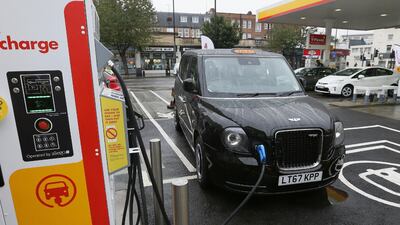The company that makes London black cabs is slashing about 25 per cent of its workforce, blaming pandemic fallout and subsequent global economic challenges.
London Electric Vehicle Company (LEVC) plans to cut up to 140 jobs — about a quarter of the workforce — at its Coventry, West Midlands, plant.
LEVC, originally called the London Taxi Company and maker of the world famous black cab, developed the capital’s first electric black cab.
More than 4,400 of the electric vehicles are on London's streets.
West Midlands mayor Andy Street called the job losses taking place in his region “incredibly sad”.
LEVC, owned by China’s Zhejiang Geely Holding Group, said its voluntary redundancy programme was part of a series of measures to return to “sustainable profitability and growth,” after the impact of the pandemic and disruption to supply chains.
It said global economic challenges meant it needed to restructure and improve cash flow.
At the end of last year LEVC employed about 550 workers, according to company filings. If those levels held steady, the cuts would represent about a quarter of the workforce.
A company representative declined to comment on the current number of employees.
LEVC recorded a loss of £118 million ($136m) in the year ended December 2021.
“It is a brilliant West Midlands brand producing green, clean taxis worldwide — it is iconic what is being done there,” Mr Street said.
“If it [job cuts] is part of the way [the company] can become more successful for the long term, sometimes it has to be done.”
The company dates back to 1908 when its founders commissioned two special model cabs specifically designed to meet new London regulations. By 1914, the firm had become the most common taxi in London.
Prof David Bailey, at the University of Birmingham, called the move a “great shame”.
“The future looks positive, but right now it’s is pretty tough. Longer term the future is electric for cars, taxis and vans,” he said.
The announcement by LEVC is another blow to the UK’s automotive industry, days after electric van start-up Arrival SA said its plan to move production to the US would have a “sizeable” effect on its UK workforce.
Britishvolt, a UK firm manufacturing lithium-ion batteries for the car industry, has also said it is looking at several options to provide “stability” after a report that it may enter administration.


